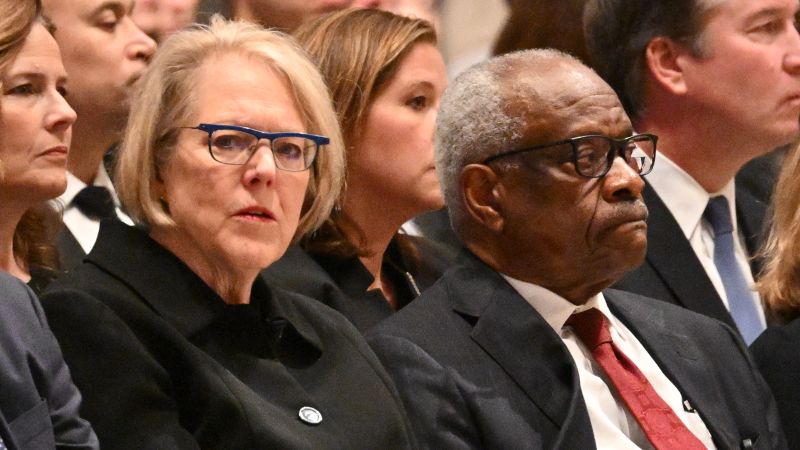Amid a high-stakes case over whether Donald Trump has immunity from criminal prosecution, Justice Clarence Thomas has indicated that he has no intention of recusing himself from the case. Critics are citing his wife’s efforts to reverse the 2020 presidential election in Trump’s favor as a reason for him to step aside. Despite calls for recusal, Thomas has not provided any explanation for his decision to remain on the case, leading to questions of impartiality from the public and judicial ethics experts.
While Supreme Court justices have autonomy when it comes to recusal decisions, there is an expectation that they should recuse themselves in cases where their impartiality could be questioned. The lack of a formal process for other justices to intervene in a colleague’s recusal decision leaves the final say up to Thomas. Calls for recusal have intensified since special counsel Jack Smith asked the Supreme Court to hear the immunity dispute on an emergency basis, citing Ginni Thomas’ activism in the 2020 election.
Democratic lawmakers and ethics experts are urging Justice Thomas to recuse himself from the case in light of his wife’s involvement in the events surrounding the 2020 election and January 6 rally. The refusal of Justice Thomas to step aside is viewed as deeply troubling and erodes public trust in the Supreme Court and the democratic process. While Ginni Thomas claims to have played no role in planning the events of January 6, her communication with Mark Meadows and involvement in efforts to overturn the election results raise significant concerns.
The potential consequences of Justice Thomas’s recusal from the case are highlighted by the fact that his absence would lead to a 4-4 split on the court, allowing the criminal prosecution to proceed. Recusals at the Supreme Court are not uncommon, with justices occasionally stepping aside from cases where their impartiality may be questioned. In some instances, justices have recused themselves from cases based on prior involvement or relationships with the parties involved, as seen in the recusal of Justice Sonia Sotomayor from a case concerning faithless presidential electors.
Justice Thomas has previously recused himself from cases, such as one involving former Trump attorney John Eastman in a January 6-related case. While Thomas did not provide an explanation for his recusal in that matter, his decision to step aside demonstrates that recusals are sometimes necessary for maintaining judicial impartiality. The lack of transparency and explanation from Justice Thomas regarding his involvement in the Trump case raises concerns about the integrity of the Supreme Court’s decision-making process and public trust in the judiciary.


